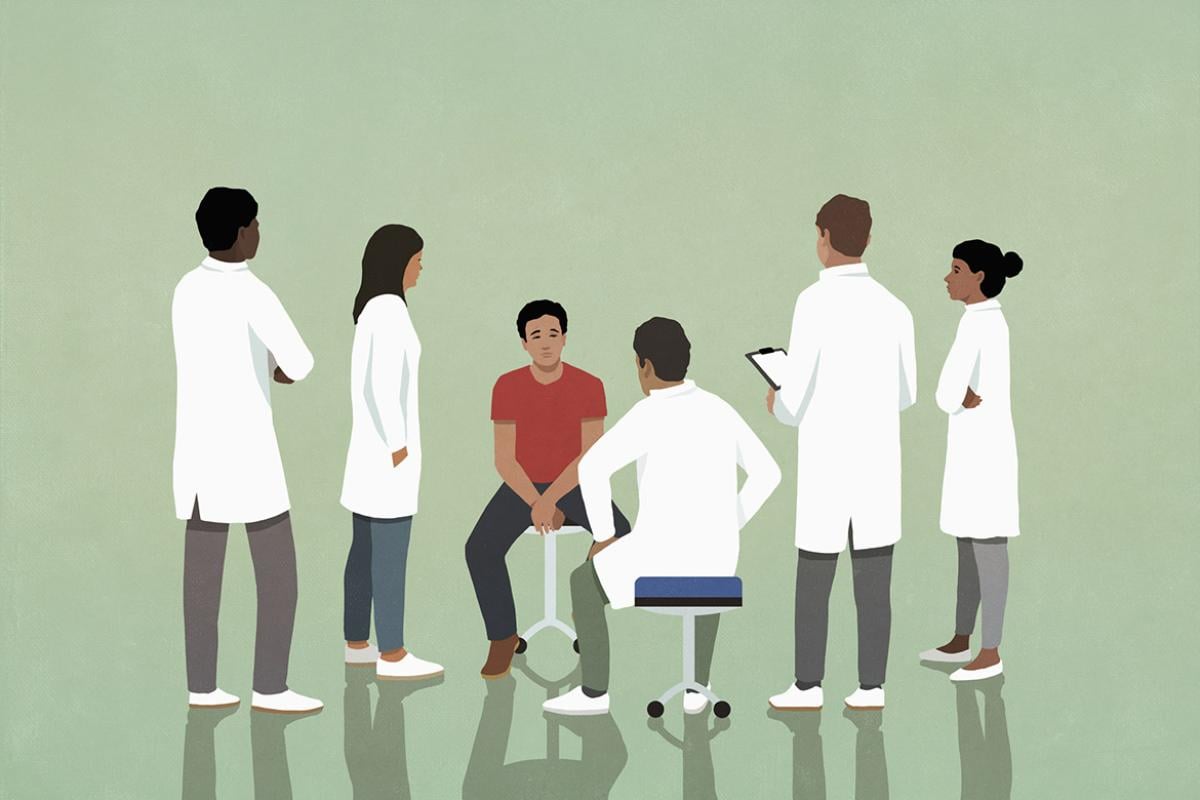The excellent care patients expect at teaching hospitals should not come with risk to the well-being of the resident physicians who do so much to provide it. The reality is that harmful stress while in training is common.
Insights on the science of stress and its reduction are provided in a 19-minute training module, “Physician Health: Physicians Caring for Ourselves,” designed to address the self-care needs of residents. It is just one of the AMA GME Competency Education Program offerings, which include more than 50 courses that residents can access online through their residency program’s subscription, on their own schedules. The program also features six faculty development courses.
The AMA GME Competency Education Program delivers education to help institutions more easily meet Accreditation Council for Graduate Medical Education common program requirements. Modules cover five of the six topics—patient care, practice-based learning and improvement, interpersonal and communication skills, professionalism, and system-based practice—within the core competency requirements. The sixth requirement, medical knowledge, is one that is typically addressed during clinical education.
Among the program’s experts are several who contributed to the AMA’s Health Systems Science textbook, which draws insights from faculty at medical schools that are part of the Association’s ChangeMedEd initiative.
Current program subscribers have access to award-winning online education designed for residents on the go. It’s easy to use and saves time with simple tracking and reporting tools for administrators. Learn more.
Three self-care activities to sample
Committed to making physician burnout a thing of the past, the AMA has studied, and is currently addressing, issues causing and fueling physician burnout—including time constraints, technology and regulations—to better understand and reduce the challenges physicians face.
By focusing on factors causing burnout at the system level, the AMA assesses an organization’s well-being and offers guidance and targeted solutions to support physician well-being and satisfaction. This includes the well-being of resident physicians, as measured in a recent AMA survey of more than 3,600 residents across the country. That having been said, there are steps that resident physicians can take individually to cut stress and improve well-being in training.
The module’s suggestions to help relieve stress often also carry some additional benefits, be it clearer thinking, weight control, better working relationships or a boost in energy. All the activities can be learned, tried out and sustained at little or no expense.
In addition to eating well, exercising regularly and getting a good night’s sleep, the module offers the following suggestions.
Practice mindfulness meditation. The module’s shorthand description is to broaden your consciousness while breathing in and out, listen to your “emotions and thoughts, and then let them pass without judgment.”
Pay attention to breathing. Stress-relief breathing is a do-anywhere technique that aids in relaxation and clear thinking. Look online for the various ways to do it and practice regularly.
Talk it out with your peers. Residency is a classic shared experience in medicine. Make use of it by recounting stressful incidents to other residents and learn what stresses them out. The perspective it brings can be relaxing to both of you.
The module also underscores the power of empathy. Practicing empathy includes learning to listen with understanding and in ways that are neither judgmental nor self-centered. It can improve your overall outlook, as well as be a decisive factor in aiding a colleague in crisis.
“If you know of someone who seems down, depressed or just not himself or herself, take time to reach out and listen,” says the module. “Practice empathy and encourage that person to get help.”
Stress: the good and the bad
The module notes that not all stress is created equally. Acute stress can be positive, powering up a physician’s effectiveness in an urgent situation, while eustress or “good stress” is associated with exciting, joyful situations and is fundamental to a healthy life.
However, chronic stress—stemming from repeated exposure to a harmful stressful environment—can be overwhelming. It can result in hostility, reduced productivity, social withdrawal, impulsivity and other negative responses.
Easy to track progress
Residency program directors have access to dashboards and reports that provide a view of progress at the program and institution levels. In addition, customizable reports make it easy to track learner performance and demonstrate compliance for accreditation.
The AMA GME Competency Education Program covers topics including well-being, quality improvement, patient safety, residents as teachers, navigating health systems, health equity, professionalism and faculty development. Schedule a meeting to discuss your organization’s needs.



